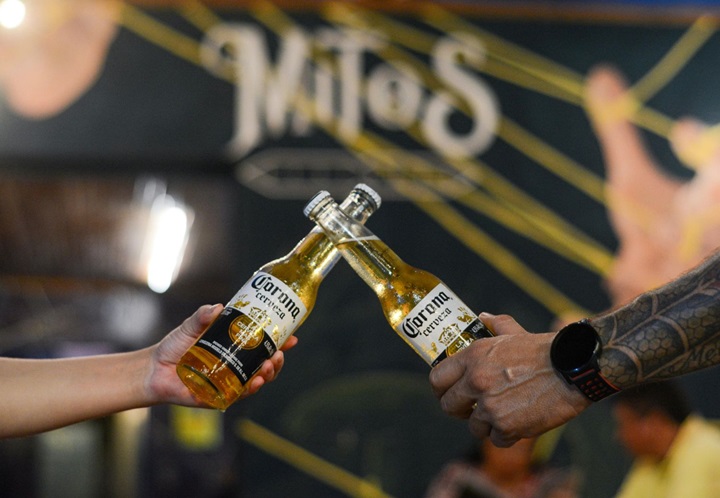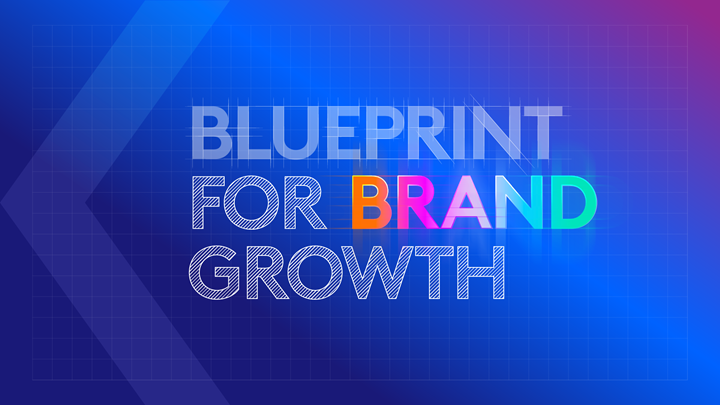Kantar BrandImprint uses cutting edge approaches from cognitive psychology and system 1 thinking to measure how quickly and easily consumers can recognize brand assets and connect them to the brand. How can brands build and strengthen these intuitive associations, and ultimately, better connect with consumers?
New dimensions to being Meaningful, Different and Salient
Kantar’s externally validated Meaningfully Different and Salient framework (MDS) explains how brand equity depends on three essential pillars: being meaningful, different and salient. But this isn’t the whole story. Neuroscience highlights the increasing importance of communicating these qualities through intuitive pathways.
To understand how effectively you’re doing this, you need the right tools and approaches. Looking at each dimension of brand strength, the key questions include:
- Meaningful: How strong is your emotional connection with people? Neuroscience tools assess implicit affinity of the brand and the instant feelings triggered by creative or packaging.
- Salient: Are your assets distinctive enough to immediately cue mental availability? Kantar BrandImprint evaluates how well brands are grabbing people’s attention and engaging their emotions.
- Different: How striking is your identity? Advanced analytics can measure how easily people sense uniqueness in a brand and the emotional terrain it occupies.
Brands with intuitive connections are more valuable
-
These aren’t abstract questions: they’re quantifiable drivers of business growth. Data from Kantar BrandZ demonstrates that brands are more valuable when people feel positively about them instantly, can recognize them easily – and when they instinctively come to mind.
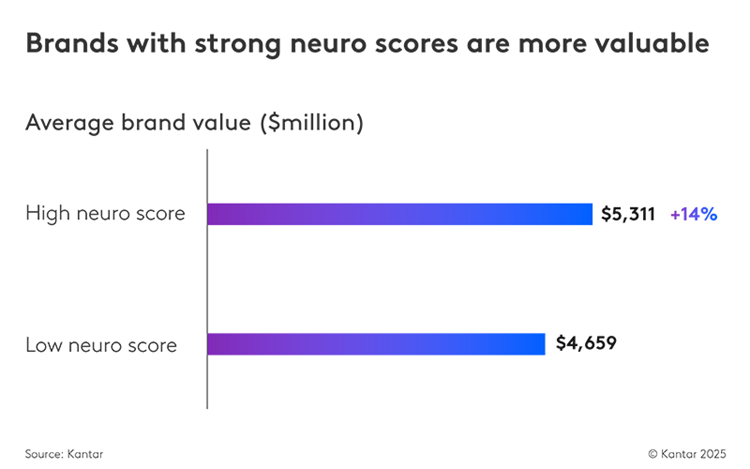
Our data also confirms that brands with stronger intuitive associations:
- are seen as being more meaningful different and salient.
- enjoy a higher power index, higher affinity and a greater brand power shar
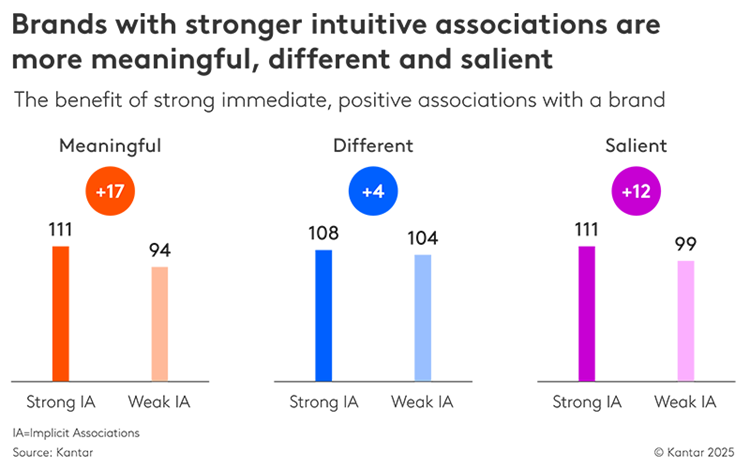

How BrandImprint drives business impact
While traditional analytics typically measure the fame and distinctiveness of assets, Kantar BrandImprint also assesses intuitiveness: how quickly people associate an asset with a brand. This comprehensive approach allows the tool to provide a reliable indication of commercial strength. Kantar data reveals that a stronger brand imprint aligns with greater brand value and growth prospects, as well as major increases in salience (52%) and customer loyalty (117%).

Get the most from your assets
As well as knowing which assets are famous, distinctive and intuitive, it’s also essential to understand what part these assets can play in well-branded creative and how to get the most from them.
A BrandImprint analysis can support these goals by incorporating advanced tools to help marketers grasp the complex issues involved. This allows us to deliver even greater value, enabling brands to move from strategies driven by intuition to those based on evidence. Options include:
- Creative driver meta-analysis: Identifies which features (end cards, jingles, celebrity presence, or other assets) most strongly drive breakthrough, short-term sales lift, long-term brand power, and branding.
- Facial coding: Captures real-time emotional responses, pinpointing moments of peak engagement.
- Eye tracking: Maps exactly where people look, revealing how key assets (logos, taglines) can be best noticed and remembered.

BrandImprint in action
Let’s take a look at how some brands have used a clear understanding of their assets to strengthen their equity and deliver tangible results.
1. Integrating neuroscience with creative analysis
A recent BrandImprint study for a financial services brand revealed that its sonic cue (jingle) was the business’s most powerful asset – outperforming even its logo and celebrity spokesperson.
The study found that:
- The jingle had the highest fame and fastest intuitive association.
- Taglines, while distinctive, were less known and would require more consistent use alongside anchor assets to build recognition.
Colors and symbols, when used in isolation, risked being wrongly attributed to competitors, and needed to be paired with the text logo for optimal effectiveness.
For each asset, the analysis measured:
- Fame: The percentage of people who correctly associated the asset with the brand.
- Distinctiveness: The extent to which the asset is associated with only one brand and not misattributed to a competitor.
- Intuitiveness: The speed of association (from slowest to fastest).
The results?
Intuitive assets – those that are famous, distinctive, and quickly recognized can be deployed across channels to cue the brand and should be paired with weaker elements to maximize effectiveness.
Lesser-known assets require more support and should be combined with stronger cues until consumers become more familiar with them.
Creative driver analysis
A creative driver analysis enabled the brand to optimize its creative strategy, making sure every asset – visual, sonic, or verbal – works to support both immediate branding and long-term loyalty.
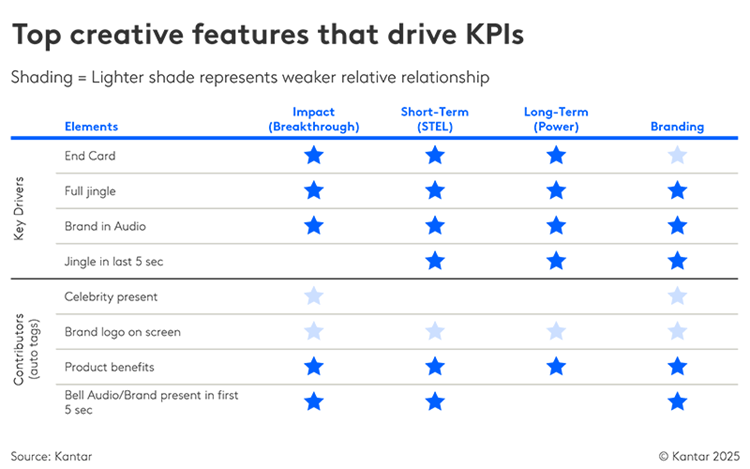
Facial coding and eye tracking
In addition, by using facial coding and eye tracking, we can clearly demonstrate which executions are most successful in leveraging the distinctive assets.
For example, many people didn’t notice the brand logo on the screen because of its placement. Eye tracking revealed that integrating the logo into the most emotionally engaging moments or placing it top-centre or top-left was more effective.
2. Consistency is key
Brands that deploy a mix of consistent visual and sonic cues over time, like a signature jingle, logo, and tagline, build exceptionally strong branding.
For instance, the ‘What beer is that?” campaign, from US beverage brand Busch, used a powerful set of cues (outdoor setting, can opening moment, sound and tagline) to create a narrative where the brand reveal coincided with the emotional peak – as shown by facial coding data.
This resulted in a highly memorable campaign, and branding scores in the top 10% for the category.

A catalyst for growth
Kantar BrandImprint is more than a measurement tool: it’s a catalyst for creative and commercial success.
Its nuanced analysis of consumer perceptions, informed by neuroscience, allows brands to clearly identify their strongest assets. Using advanced tools, they can then dig deeper to find ways of deploying these that genuinely move the needle. The result is stronger creative and more effective packaging – in turn supporting higher value, improved loyalty, and increased revenue.
In a world where attention is scarce and competition fierce, BrandImprint empowers brands to connect, differentiate, and thrive. What’s more, they’ll have the data to prove it.
To learn more about how BrandImprint can help you build strong emotional connections with consumers, get in touch with the Kantar representative in your country.
And if you’d like to dive deeper into Brand Strategy more broadly, sign up to our free masterclass series.





